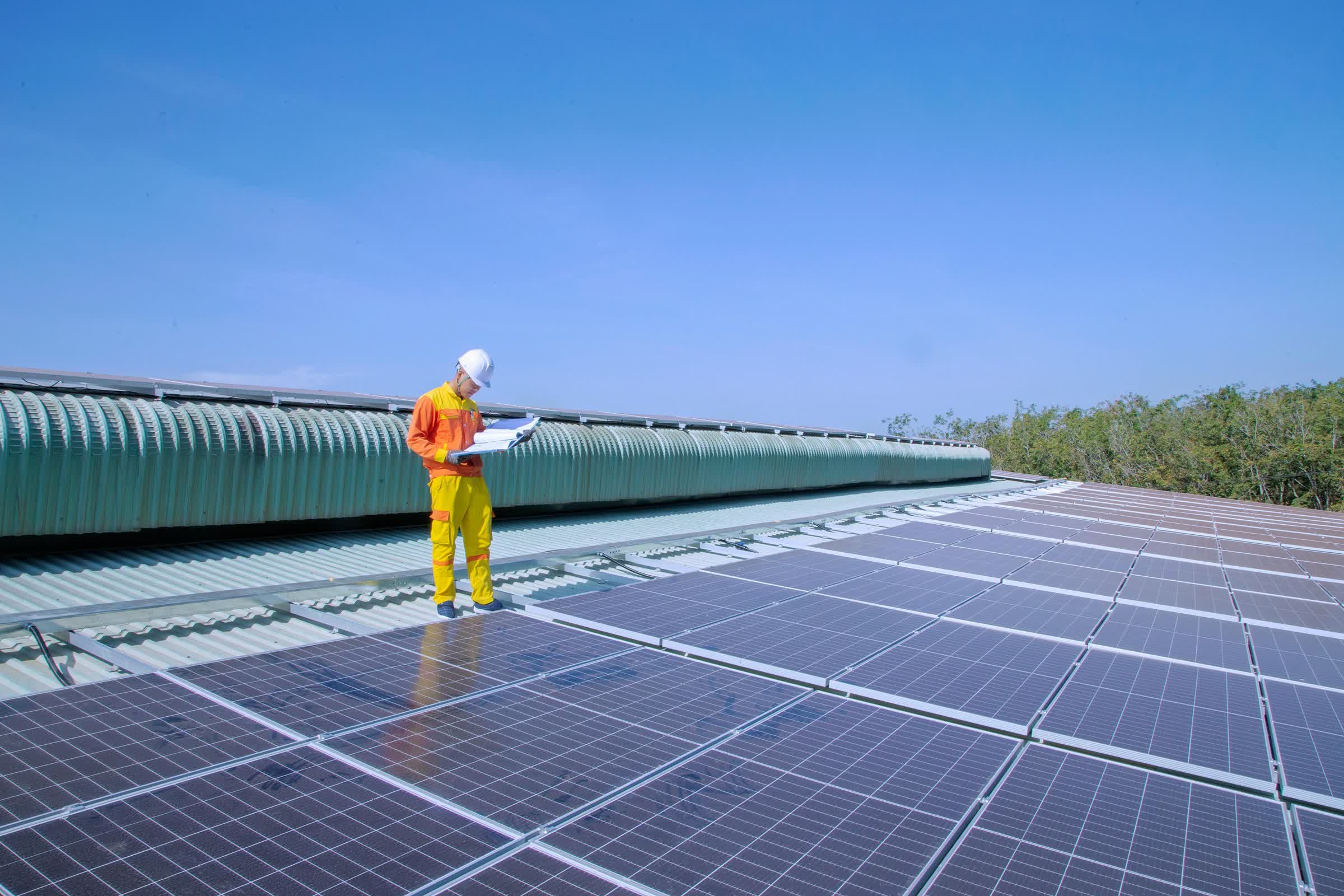Serving tech enthusiasts for over 25 years.
TechSpot means tech analysis and advice you can trust.
What just happened? Highly aware of how limited its natural resources are, Dubai has been a leader in implementing green systems throughout its economy, including its transportation sector. Now, two landmark initiatives, which build on previous projects undertaken at Dubai Airports, are setting a new standard for sustainability in the aviation industry.
Dubai Airports is set to install the world's largest rooftop solar panel system at an airport that will span both Dubai International (DXB) and Dubai World Central (DWC) airports. The system, which will boast 62,904 solar panels, will generate 60,346MWh of clean energy annually, meeting 6.5 percent of DXB's and 20 percent of DWC's power needs.
Scheduled to be completed in 2026, the project will offset 23,000 tonnes of CO2 emissions annually, equivalent to removing 5,000 cars from the road or powering 3,000 homes for a year.
"Every kilowatt we generate from renewable sources brings us closer to shrinking our carbon footprint and future-proofing our operations," said Paul Griffiths, CEO of Dubai Airports.
Dubai Airports has partnered with Etihad Clean Energy Development Company on the project.

Meanwhile, Emirates airline has announced plans to power 37 percent of its Engineering Center operations through clean energy via another partnership with Etihad Clean Energy. The airline will install 39,960 solar panels with a total capacity of 23,177 kWp. This project is expected to generate 34,301,960 kWh annually and reduce CO2 emissions by more than 13,000 tonnes annually.
The initiatives build on previous solar installations, including those at DXB's Terminal 2 and Concourse D. Other Emirates-owned facilities in Dubai, such as the Emirates Flight Catering facility and The Sevens Stadium, already boast solar panel installations.
As part of the Dubai 2040 Urban Master Plan, the city is prioritizing sustainable urban development and green infrastructure, including its transportation sector. Dubai Airports has been aggressively undertaking projects to help meet these goals. It has optimized cooling systems, switched to biodiesel-powered ground vehicles, and cut its food waste in landfills.
At the same time, Dubai's broader sustainability targets are also being implemented at a rapid pace. Its clean energy roadmap originally targeted 25 percent clean energy by 2030 and 100 percent by 2050. However, the city is actively speeding up its efforts, according to Saeed Mohammed Al Tayer, Managing Director and CEO of the Dubai Electricity and Water Authority (DEWA), the parent of Etihad Clean Energy Development Company. Al Tayer anticipates potentially reaching 27 percent clean energy capacity as early as 2030.




:quality(85):upscale()/2024/10/29/625/n/1922564/ec222ac66720ea653c5af3.84880814_.jpg)
:quality(85):upscale()/2024/10/25/846/n/49351082/bfc0fdb3671bef086c3703.42134063_.jpg)

:quality(85):upscale()/2021/07/06/971/n/1922153/7d765d9b60e4d6de38e888.19462749_.png)
:quality(85):upscale()/2024/10/29/957/n/1922441/c62aba6367215ab0493352.74567072_.jpg)
 English (US) ·
English (US) ·